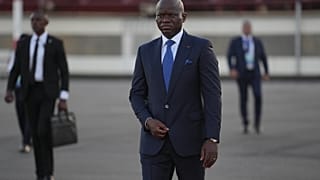Sudan
Sudan’s annual inflation rate eased slightly to 12.44 percent in January from 12.58 percent in December, partly due to cheaper global oil prices, a monthly report from the country’s statistics office said on Wednesday.
Sudan became an oil importer after South Sudan seceded in 2011. The new nation took with it three-quarters of Sudan’s oil output, the main source of foreign currency used to support the Sudanese pound and to pay for food and other imports.
Cuts in fuel subsidies introduced in 2013 pushed up inflation, but these effects have since begun to ease.
In December, the Sudanese pound fell to its lowest on the parallel market since 2011, currency traders said, as the official banking system struggled to supply dollars needed to buy imports. The pound has hovered around the same level in January.
Sudan expects a budget deficit of 1.6 percent of GDP for the coming year, up from 1.2 percent for 2015.
The government said in December it expected growth to increase in the coming year as lower oil prices reduce its import bill. It projects a growth rate of 6.4 percent this year, up from 5.3 percent in 2015.





![Africa's economy to expand in 2026 despite risks [Business Africa]](https://images.euronews.com/articles/stories/09/59/18/91/320x180_cmsv2_a090e29c-4edc-5b24-a887-6dea31e3ec4e-9591891.jpg)








01:23
Donald Trump defends first year back in office in politically charged speech
01:01
Sudan's transitional leader al-Burhan holds talks with Saudi Crown Prince in Riyadh
02:19
Researchers find evidence of youngest-ever children tattooed
00:49
Eritrea announces departure from IGAD regional bloc
01:14
UK sanctions four senior RSF commanders over atrocities in Sudan
02:01
Sudan: RSF capture of Heglig threatens South Sudan's oil exports